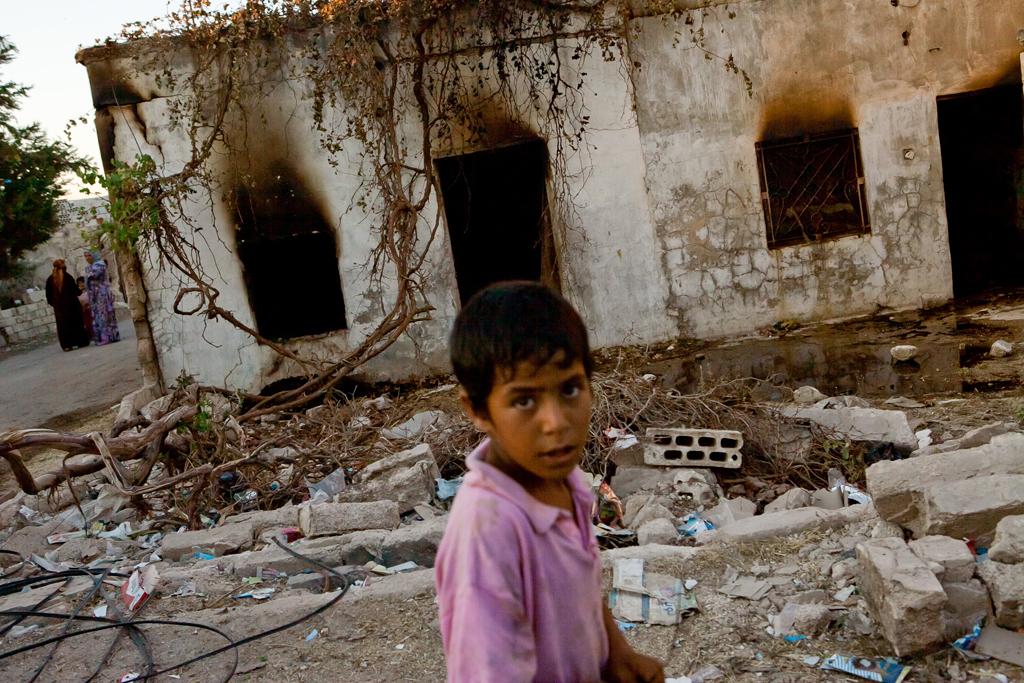Damascus fighting continues in Syria
A Syrian boy walks past a burnt house in the Syrian village of Treimsa, where more than 150 people were killed this week, in the central province of Hama on July 13, 2012. Activists reported continued clashes in Damascus on July 16, 2012.
Clashes between Syrian troops and rebels continued for a second day in Damascus on Monday, in some of the worst violence in the capital since the uprising began 16 months ago, the Associated Press reported.
The intense fighting saw plumes of black smoke drift above the skyline and momentarily closed the highway linking the airport to the southern part of the city.
An activist, Mustafa Osso, told the AP, "It seems there is a new strategy to bring the fighting into the center of the capital." He said, "The capital used to be safe. This will trouble the regime."
The BBC said mortar and small-arms fire were reported in several neighborhoods. Some areas saw residents fleeing while others saw protesters burning tires and blocking roads.
More on GlobalPost: Damascus sees fiercest fighting yet, say reports
Reuters reported that armored vehicles were heading towards the southern districts of Damascus after government troops and rebels clashed. According to locals, at least five people were killed and dozens were wounded in Sunday's fighting.
According to residents, the fighting eased slightly as the night wore on and there were some protests supporting the opposition in the poorer neighborhoods of Damascus, said Reuters.
More on GlobalPost: Syria's Plan B: An Allawite state?
Syria denied using heavy weapons on Tremseh, a small farming community, where dozens were left dead, The New York Times reported. United Nations monitors said there was evidence of heavy weaponry and attack helicopters being used. Video footage collected by the monitors also suggests that the town was heavily battered by government forces.
Syria's isolation also deepened, as Morocco and Syria declared each other's ambassadors persona non grata, said The Times.
Right before Kofi Annan, the special Syria envoy of the UN and the Arab League, was to persuade Russia to increase pressure on the Syrian government, Russian Foreign Minister Sergey V. Lavrov said there were "elements of blackmail" to the Western approach to the crisis at the UN, according to The Times.
The story you just read is accessible and free to all because thousands of listeners and readers contribute to our nonprofit newsroom. We go deep to bring you the human-centered international reporting that you know you can trust. To do this work and to do it well, we rely on the support of our listeners. If you appreciated our coverage this year, if there was a story that made you pause or a song that moved you, would you consider making a gift to sustain our work through 2024 and beyond?
